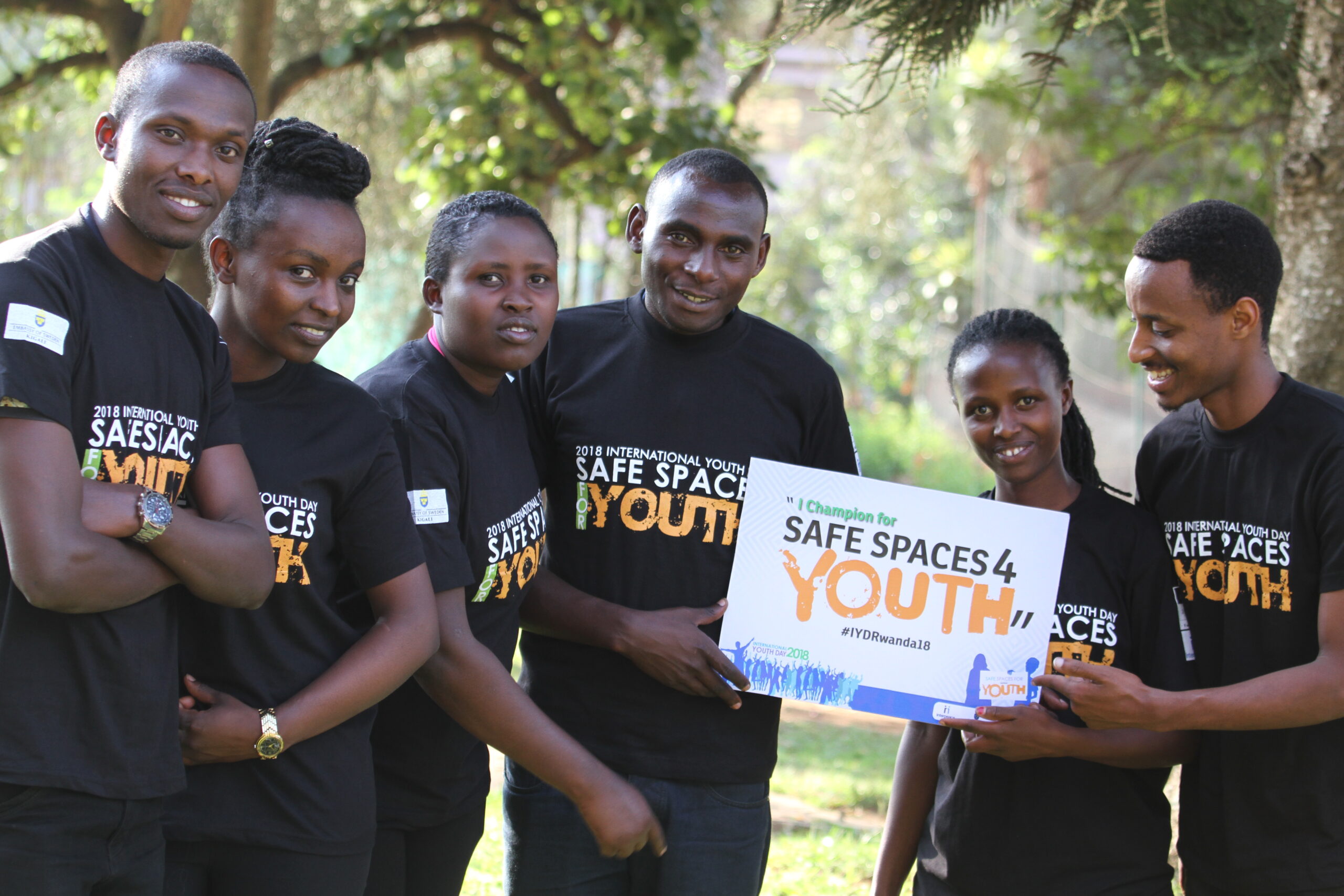Since its inception in 2002, Never Again Rwanda’s (NAR) activities have been largely dominated by youth engagement, empowerment and mentorship. Some of the activities have ranged from providing spaces for dialogue, equipping youth with critical thinking and technical skills among so much more. In peacebuilding, one of NAR’s components, creating these safe spaces is a vital first step in allowing young people to share their experiences of conflict, and work towards achieving a more peaceful future.
Last week on Sunday 12th August, just like the previous years since 2016 when NAR started to commemorate the International Youth Day, NAR convened youth from diverse backgrounds among other participants to discuss the functionality, challenges and limitations to safe spaces for youth. Hinging on the international theme: “Safe Spaces for Youth”, a dialogue was facilitated between government officials, academia and civil society representatives and -most importantly- youth groups with the goal of offering practical solutions to the challenges of creating youth-friendly spaces that are safe and dignifying.
In his welcoming remarks, the Executive Director of Never Again Rwanda noted that although youth were manipulated into committing Genocide, they are also playing a vital role in the reconstruction of peace processes in the post-genocide Rwanda. He continued to say that safe spaces are vital platforms, which help youth to openly share their views and opinions: “If the future of the world is to be entrusted into the hands of our younger generation, then providing them safe spaces today is one way to ensure that the future will be safe and bright”. He also urged youth to appropriately use the existing spaces so that they can contribute to building the sustainable and peaceful country.
The Director of Youth Economic Empowerment at the Ministry of Youth, Ngabonziza Benoit, reiterated the political will of the Rwandan government to establish safe spaces for youth in order to advance their empowerment so that they can be engaged in positive opportunities for civic participation at all levels.
The Chairman of National Itorero Commission, Hon. Edouard Bamporiki, who was among the Panelists mentioned that “Safer spaces for youth should be categorized accordingly to different groupings to enable young people to feel free to contribute without fear of being judged, this can work through grouping them into small numbers per age or backgrounds”. He also added that “Youth should raise their voices when they see things are not working appropriately as a good way to use the existing platforms”.
Diane Uwamahirwe shared her experiences from NAR’s safe spaces describing them as a safer environment where youth are able to heal their wounds while Murenzi Tristan mentioned that in safe space youth should not only focus on their own development but also the country’s future as well as to embrace their past in a bid to combine the efforts for building the future of the country”.
Currently NAR has 101 Clubs officially registered with Affiliation Status, with a total of 4,207 members including 2,031 Male and 2,176 Female. The event that attracted over 120 participants is part of the Societal healing and Participatory Governance in Peace Porgramme that is jointly implemented by Interpeace and supported by SIDA – Sweden in Rwanda.


